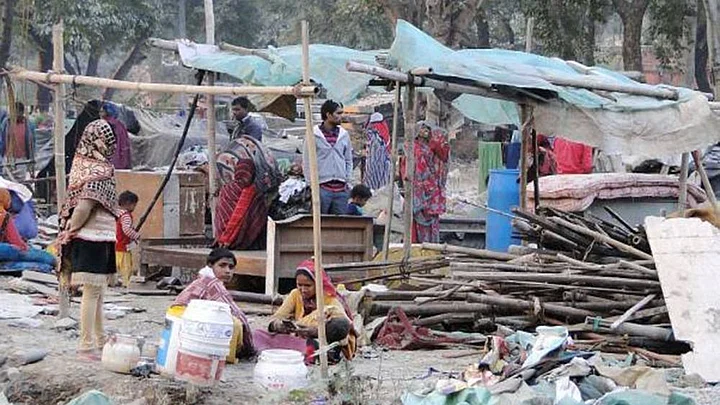The Supreme Court on Monday, 25 April, stopped demolition of around 200 jhuggis at Sarojini Nagar area in Delhi, saying a model government should take humane approach as fundamental rights are involved.
The top court said no coercive action will be taken by the authorities till the next date of hearing, and scheduled the case for hearing on next Monday.
The top court sought central government response on the slum dwellers' prayer that there shall be no demolition without proper relief and rehabilitation plan.
A bench comprising Justices KM Joseph and Hrishikesh Roy said: "No coercive action. List on Monday."
At the outset senior advocate Vikas Singh, representing the residents of jhuggis, submitted that some scheme should be there to rehabilitate the nearly 1,000 people, which include school going children.
"Can't Simply Throw Them Away": Judge
Singh said, "They cannot be asked to vanish in the air..."
Additional Solicitor General KM Nataraj, representing the Centre, contended that somebody who has taken over a government land, and enrolled as a voter can not get a right to stay. A counsel representing the Delhi government submitted that the people should be protected.
Justice Joseph noted that the government notice said, 'hand over the land to the government', and told Nataraj the whole idea is that they have been residing there and the government should deal with people humanly.
"When you deal with them, as a model government, you can't say you won't have a policy and simply throw them away. You're dealing with families...," he added.
Nataraj submitted that relief can be given to the petitioners, but they cannot espouse the cause of everyone in the garb of a PIL.
"Being a petitioner himself he can't say he's seeking (relief) for others as well," said Nataraj.
'Each Jhuggi Person Has Individual Right': SC
The bench noted that some people have been living on the land in contention since 1995. Justice Roy said this case has implications on all people and queried Nataraj, "Should it be that only two persons before court are protected and others aren't?"
The top court, citing a Delhi High Court judgment, noted that each jhuggi person has individual fundamental rights.
After a detailed hearing in the matter, the bench said there should not be any coercive action till the next date of hearing. The top court said the copy of the petition should be served upon the ASG, as he sought time to address the court.
Three of the petitioners are minor school going children, and residents of the said slums. Two of them have to appear for board exams commencing from 26 April.
"The residents of the said jhuggis are extremely indigent persons such as dhobis, daily wage labourers, rag-pickers, maids, street vendors, etc and they do not have any other source of residence. Petitioner No 1, 2 and 4 are minor school going children (attending school in Sarojini Nagar area itself) and residents of the said jhuggis, the petitioner No 1 and 4 are also appearing for their Board Exams starting 26 April, 2022 (as notified by the CBSE)", said the plea, filed through advocates Nitin Saluja and Aman Panwar.
The plea contended that the petitioners do not seek to hinder any of the development work/ public projects undertaken by the government, and are only seeking rehabilitation/relocation as per the policies of the state.
(At The Quint, we question everything. Play an active role in shaping our journalism by becoming a member today.)
